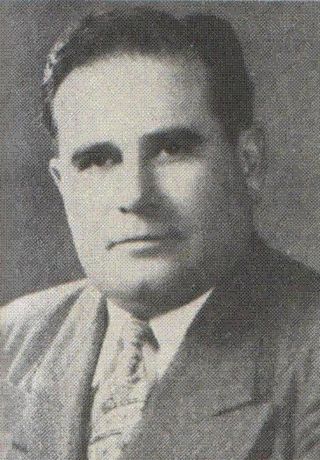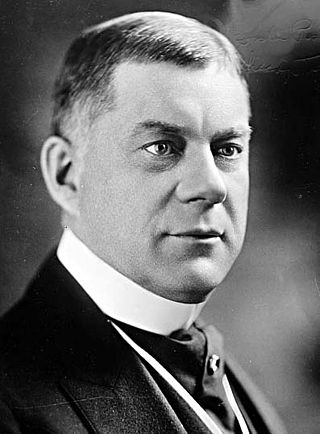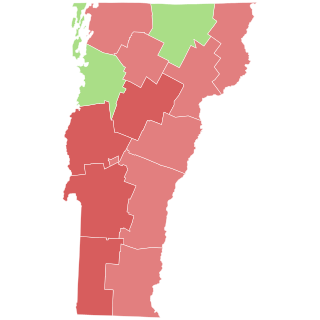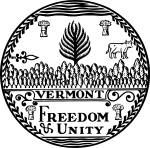
The 1972 United States Senate elections were held on November 7, with the 33 seats of Class 2 contested in regular elections. They coincided with the landslide re-election of Republican President Richard Nixon. Despite Nixon's landslide victory, Democrats increased their majority by two seats. The Democrats picked up open seats in Kentucky and South Dakota, and defeated four incumbent senators: Gordon Allott of Colorado, J. Caleb Boggs of Delaware, Jack Miller of Iowa, and Margaret Chase Smith of Maine. The Republicans picked up open seats in New Mexico, North Carolina, and Oklahoma, and defeated one incumbent, William B. Spong Jr. of Virginia.

The 1964 United States Senate elections were held on November 3. The 33 seats of Class 1 were contested in regular elections. Special elections were also held to fill vacancies. They coincided with the election of President Lyndon B. Johnson by an overwhelming majority, to a full term. His Democratic Party picked up a net two seats from the Republicans. As of 2023, this was the last time either party has had a two-thirds majority in the Senate, which would have hypothetically allowed the Senate Democrats to override a veto, propose constitutional amendments, or convict and expel certain officials without any votes from Senate Republicans. In practice, however, internal divisions effectively prevented the Democrats from doing so. The Senate election cycle coincided with Democratic gains in the House in the same year.

The 1958 United States Senate elections were elections for the United States Senate which occurred in the middle of President Dwight D. Eisenhower's second term. Thirty-two seats of Class 1 were contested in regular elections, the new state of Alaska held its first Senate elections for its Class 2 and 3 seats, and two special elections were held to fill vacancies.

Winston Lewis Prouty was an American politician. A member of the Republican Party, he served as a United States Senator from Vermont from 1959 until his death. He was previously a member of the United States House of Representatives, serving Vermont's At-large congressional district, from 1951 to 1959.

Lee Earl Emerson was an American politician who served in both the Vermont House of Representatives and the Vermont Senate. A member of the Republican Party, he was the 63rd Lieutenant Governor of Vermont and the 69th governor of Vermont. When he was first elected in the 1950 Vermont gubernatorial election, he received over 70% of the vote, something no Republican since has equaled. Despite his success in 1950, he lost the Republican primary for U.S. Senate in Vermont in 1958 to Congressman Winston L. Prouty. He also lost the 1960 primary for Vermont's seat in the U.S. House of Representatives to incumbent Governor Robert T. Stafford.

Harold John Arthur was the 68th governor of Vermont from 1950 to 1951. He also served as the 64th lieutenant governor of Vermont from 1949 to 1950.

Charles Azro Prouty was an American Republican politician and government official who was involved with reform movements including the Progressive and Prohibition Parties. He served as a commissioner of the Interstate Commerce Commission (ICC) from 1896 to 1914. He was an unsuccessful candidate for the United States Senate from Vermont in 1914, losing to incumbent Republican senator William P. Dillingham.

The 1922 United States Senate election in Vermont took place on November 7, 1922. Incumbent Republican Carroll S. Page did not run for re-election to another term in the United States Senate. Republican candidate Frank L. Greene defeated Democratic candidate William B. Mayo to succeed him.

The 1976 United States Senate election in Vermont took place on November 2, 1976. Incumbent Republican Robert Stafford successfully ran for re-election to another term in the United States Senate, defeating Democratic candidate Governor Thomas P. Salmon.

The 1970 United States Senate election in Vermont took place on November 3, 1970. Incumbent Republican Winston L. Prouty successfully ran for re-election to third term in the United States Senate, defeating Former Democratic Governor Philip H. Hoff.

The 1972 United States Senate special election in Vermont took place on January 7, 1972. Incumbent Republican Robert Stafford, appointed in September 1971 to fill the vacancy created by the death of Winston L. Prouty, successfully ran for election to the remainder of Prouty's term in the United States Senate. Stafford defeated Democratic candidate Randolph T. Major. Liberty Union candidate Bernie Sanders received 2% of the vote and was later elected to this seat in 2006 as an independent.

The 1964 United States Senate election in Vermont took place on November 3, 1964. Incumbent Republican Winston L. Prouty successfully ran for re-election to another term in the United States Senate, defeating Democratic candidate Frederick J. Fayette.

The 1952 United States Senate election in Vermont took place on November 4, 1952. Incumbent Republican Ralph Flanders successfully ran for re-election to another term in the United States Senate, defeating Democratic candidate Allan R. Johnston.

The 1946 United States Senate election in Vermont took place on November 5, 1946. Incumbent Republican Ralph Flanders successfully ran for re-election to a full term in the United States Senate, defeating Democratic candidate Charles P. McDevitt.

The 1940 United States Senate election in Vermont took place on November 5, 1940. Incumbent Republican Warren Austin successfully ran for re-election to another term in the United States Senate, defeating Democratic candidate Ona S. Searles. Austin would resign in August 1946 to become United States Ambassador to the United Nations; Ralph Flanders was appointed to replace him and went on to win election to a full term in 1946.

The 1934 United States Senate election in Vermont took place on November 6, 1934. Incumbent Republican Warren Austin successfully ran for re-election to a full term in the United States Senate, defeating Democratic candidate Fred C. Martin. Austin was elected in a 1931 special election to replace Frank C. Partridge, who was appointed to fill the vacancy created by the death of Frank L. Greene. As of 2022, Martin's 48.37% vote share remains the largest a Democrat has ever received for Vermont's Class I Senate seat.

The 1931 United States Senate special election in Vermont took place on March 31, 1931. Republican Warren Austin was elected to the United States Senate to serve the remainder of the deceased Frank L. Greene's term, defeating Democratic candidate Stephen M. Driscoll. Austin replaced Frank C. Partridge, who was appointed to fill the seat until a special election could be held and was defeated in the special primary.

The 1928 United States Senate election in Vermont took place on November 6, 1928. Incumbent Republican Frank L. Greene successfully ran for re-election to another term in the United States Senate, defeating Democratic candidate Fred C. Martin. Greene died in December 1930 and Frank C. Partridge was appointed to fill the seat until a special election could be held in March 1931.

The 1916 United States Senate election in Vermont took place on November 7, 1916. Incumbent Republican Carroll S. Page successfully ran for re-election to another term in the United States Senate, defeating Democratic candidate Oscar C. Miller. This was the second United States Senate direct election to take place in Vermont following the ratification of the Seventeenth Amendment to the United States Constitution and the first for Vermont's Class I seat.

The 1914 United States Senate election in Vermont took place on November 3, 1914. Incumbent Republican William P. Dillingham successfully ran for re-election to another term in the United States Senate, defeating Charles A. Prouty. This was the first United States Senate direct election to take place in Vermont following the ratification of the Seventeenth Amendment to the United States Constitution.

















